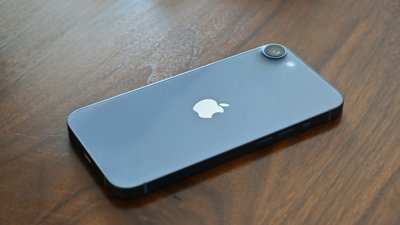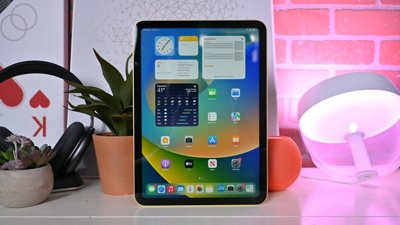The iPhone SE line has been discontinued as of February 19, 2025. Rumors pointed to a new entry iPhone coming, but everyone assumed it was the iPhone SE 4.
Instead, Apple released a new higher-end model positioned between its budget and flagship called iPhone 16e. It looks like an iPhone 14, but has a single rear camera, USB-C, and has an A18 processor for Apple Intelligence.
Apple no longer sells the iPhone SE and it likely won't reintroduce the $429 product. The iPhone 16e starts at $699, which is still $200 below the base iPhone 16.
Everything below this point is preserved from prior to the iPhone 16e announcement.
Apple rarely goes for the budget side of a product line, but it always comes with some surprises when it does. The 2022 iPhone SE is everything you’d expect in a flagship iPhone, packed into a classic design.
The affordable iPhone has never been more enticing with Touch ID, 4K video recording, an A15 processor, and a 4.7-inch display. It is a device for users who want a great deal or are not fond of Face ID and the lack of a Home Button.
Apple introduced iOS 17, and while some features focused on newer iPhones with always-on displays, Apple didn't shy away from ecosystem-wide updates. Features like the new iMessage experience, FaceTime video mail, Apple Pay, and offline Apple Maps are available to all users.
Up Next: iPhone SE 4
Apple was expected to reveal another iPhone SE in 2023 or 2024 with characteristics based on the iPhone XR. This rumored iPhone SE used the older body style with an updated chipset, which is the status quo for Apple's affordable iPhone.
While this seemed like an obvious next step for Apple, analyst Ming-Chi Kuo said the "iPhone SE 4" was canceled, at least briefly, from early January to the end of February 2023. Forecasting using supply chain data can lead to a lot of odd results, like seeing a product as canceled before a new set of material orders come through to show a product design shift.
He stated that the fourth-generation iPhone SE was back in production, though this time, it resembled the iPhone 14 and had an OLED display. It is expected to use Apple's in-house modem.
Evidence continues to grow that the next iPhone SE will look like an iPhone 14, but there will be a USB-C port and other design changes.
A September 2023 rumor suggests even more incredible upgrades for the iPhone SE 4.
It would include:
- iPhone 14 chassis
- Action button
- USB-C port
- Single 48MP rear camera
- OLED display
- Face ID
- In-house 5G modem
Such upgrades seemed like a stretch at the time, but appear likely as more rumors appear. The purpose of Apple's budget iPhone is cost saving, which means it won't get the latest and greatest technology to leave margins for profit.
Since the iPhone SE 4 wouldn't arrive until 2025 or 2026, it is likely that the price of the technologies used in the device will be reduced enough for a budget-friendly iPhone. As of September 2024, the iPhone 14 is two years old.
A new leak in early April 2024 suggests that the design fourth-generation iPhone SE will more closely resemble the iPhone 13, rather than the iPhone 14, and that the back will look like the iPhone XR with a single camera.
Additionally, the leak says that the iPhone SE 4 will feature "AI Photography" though it does not explain what this could possibly mean. This set of leaks, however, hasn't been repeated and everyone has returned to describing the device as resembling an iPhone 14 with a single camera.
One rumor says Apple will shift the naming to "iPhone 16E" but that would likely confuse customers. Unless Apple released a new SE model every year, the 16 name would quickly appear outdated.
Code in iOS 18.3 shows evidence that Apple plans to release the iPhone SE 4 with iOS 18.3 installed, leading some to speculate the device would launch sometime in January. However, more reliable sources suggest it won't arrive until around April, but before iOS 18.4.
2022 iPhone SE Features
The iPhone SE continues to be a budget-focused device with no new flashy features or gimmicks. During its 2022 "Peek Performance" Apple event, Apple announced the new iPhone SE with a processor bump and new 5G capabilities.
iPhone SE - Design
The Apple iPhone SE design may not be remarkable, but it has a good reason for it. It is built to resemble the iPhone 8, which was similar to the iPhone 6. This means that users have a modern option that eschews Face ID for Touch ID, but without making many compromises.
Apple was able to keep the iPhone SE price low by maintaining the old design. The phone features front and back glass panels made with the same glass used in the rear of the iPhone 13 to provide scratch protection, but not Ceramic Shield. The aluminum frame remains the older, curved candy bar design.
The iPhone SE's external design has remained unchanged on purpose. Apple's supply chain is one of its strengths and producing the same form factor for a longer time drives component prices down. By keeping the exterior the same while changing internal components, the manufacturing costs of the iPhone SE can be reduced.
The phone is available in three colors: Midnight, Starlight, and (RED). However, regardless of the color you choose, the phone will have a black glass faceplate. Previously, white, gold, and rose gold iPhone models had a white faceplate. Apple chose to use all-black fronts for simplicity and to keep the design consistent with Face ID-equipped devices.
A teardown of the second-generation iPhone SE revealed that its configuration was almost identical to that of the iPhone 8. The component locations were similar and could be moved between the cases without any problems. The only noticeable difference was the label that distinguished the chipsets.
iPhone SE - Display
The 4.7-inch Retina HD display returns in the iPhone SE, with True Tone and Night Shift built-in. It has the same 326ppi density as the previous iPhone SE, so the screen looks identical.
The P3 color gamut means HDR content can be displayed on-screen with no issue, and Apple supports the latest codecs in the iTunes Store, including HDR10 and Dolby Vision.
Despite having a lower resolution than competing smartphones, the iPhone SE display remains crisp and clear due to the high pixel density. Viewing video at 1080p will not be noticeably different from viewing the same video on higher resolution devices.
iPhone SE - Processor
Apple used the A15 Bionic chip from the iPhone 13 in iPhone SE 2022, meaning you get all the computational power of a flagship smartphone in a device that costs half as much. This includes exporting a video edit, playing games from Apple Arcade, and using an Augmented Reality app, which is faster and smoother because of the chip.
Apple has been flexing its strength with its custom Apple Silicon. The company is so confident in its processors that it has shifted the Mac lineup to Apple-made M1 processors. Products like the budget-conscious iPhone benefit from the power and the lower cost of custom processors.
iPhone SE - Camera
The front-facing camera is 7MP, which will record in 1080p at 30 FPS. Even without a Face ID sensor for depth-sensing, you can take Portrait Mode selfies using advanced algorithms.
The rear camera is the same module as the iPhone 8, meaning you can take 4K video and capture 12MP photos. The image signal processor in the iPhone SE A15 chip improves photo quality across generations and introduces new features like Deep Fusion.
Unique to this iPhone is a new Portrait Mode system that relies entirely on machine learning. It is called "Single Image Monocular Depth Estimation," using the power of the A15 to process image depth maps entirely on the device.
iPhone SE - 5G modem
Apple moved the iPhone SE to 5G with its 2022 model. This means every modern iPhone being sold by Apple now has a 5G modem.
Not all 5G modems are identical. The modem used in the iPhone SE 2022 is only capable of sub-6GHz speeds. This means the ultra-wideband speeds offered on some networks in the United States won't work.
However, most users won't notice the difference as sub-6GHz 5G is still noticeably faster than LTE. Everything from downloads to streaming should be noticeably faster given decent network conditions.
iPhone SE 3 review
The third-generation iPhone SE is positioned as the cheapest new iPhone you can buy while offering the benefits of top-end models. It comes with the most recent A15 bionic chip and a 5G antenna while retaining everything else found in the previous iPhone SE, such as Touch ID and a home button.
Apple increased the price of the iPhone SE by $30. However, it is still less expensive compared to the iPhone 13 mini by $270. Even if you opt for the 256GB storage option, you'll still save $120 compared to the next model.
The design of the new iPhone SE is almost identical in every aspect, except for the colors, which have been slightly modified. It has a 4.7-inch Retina display with a Home Button placed below the screen, following the classic design of the iPhone 8.
According to Apple, it has used a stronger glass for the display of the iPhone SE, but no other material changes have been made to the external enclosure. The significant improvement for this new iPhone is the processor upgrade.
Benchmarking tool Geekbench 5 shows similar performance to the iPhone 13 Pro with 1744 single-core and 4315 multi-core scores. However, the iPhone SE has only 4GB of RAM versus 6GB in the iPhone 13 Pro, so peak performance and apps stored in memory will be less overall.
We were disappointed at the lack of MagSafe, but battery life is extended by a bit, at least. Thanks to the improved efficiency in the A15, video playback is extended by two hours, and audio can be played for up to 50 hours.
With the third-generation iPhone SE, you know exactly what you're going to get. Everything is borrowed from the aging iPhone 8 design to the A15 processor.
You won't get advanced features like Face ID, telephoto camera, macro photography, mmWave 5G, or MagSafe. But, the price reflects the lack of Apple's flagship iPhone's features.
For those who want an inexpensive iPhone without sacrificing performance or longevity, Apple's got you covered with the iPhone SE. Tech-savvy users looking for more features are covered by the flagship iPhone lineup.
iPhone SE Compared
iPhone SE vs iPhone 13 mini
Apple sells the iPhone SE as an entry point into the iPhone lineup, with the iPhone 13 mini available at the next tier for $270 more. These devices have major differences in design, cameras, storage, and display.
The third-generation iPhone SE has the same design as the iPhone 8, which dates back to the iPhone 6. The device features a 4.7-inch display that fits within a prominent chin and forehead, resulting in a similar size to the all-screen iPhone 13 mini.
Although the dimensions are close, the iPhone SE is slightly taller and longer compared to the iPhone 13 mini, despite having a smaller display. The iPhone 13 mini utilizes its available space more effectively with an edge-to-edge screen and a notch cutout for Face ID.
The iPhone 13 mini's Super Retina XDR display is OLED, with a 2340-by-1080-pixel resolution compared to the 1334-by-750-pixel resolution of the LCD iPhone SE Retina HD display.
Both devices have the A15 Bionic processor, which means the performance will be nearly identical. Benchmarks show similar scores for single and multi-core performance.
The camera systems for each device are another big differentiator. The iPhone 13 mini has three 12MP cameras — one Wide, one Ultra Wide, and one selfie camera. The iPhone SE only has a 7MP selfie camera and a 12MP rear camera.
While each device supports 5G, only the iPhone 13 mini has mmWave 5 G, the faster version of 5G available only in select areas of the United States.
The iPhone 13 mini also has a handful of features not available on the budget iPhone. MagSafe accessories, Ceramic Shield, and Face ID, to name a few.
Read the entire spec breakdown and comparison in the full article: New 2022 iPhone SE vs iPhone 13 mini.
iPhone SE 3 vs iPhone SE 2
The external design, color options, display, cameras, and biometrics are identical across generations. However, Apple hopes a processor bump and 5G connectivity will be enough to entice people to upgrade.
Benchmarks show that the third-generation iPhone SE is significantly faster thanks to the A15 processor. It scores nearly double in multi-core performance and has much-improved graphics.
The A15 also brings improved camera processing to the new model. The camera specs didn't change but added features like Deep Fusion, Smart HDR 4, and Photographic Styles make for a much better image.
5G connectivity, sans mmWave, means the iPhone SE has faster and more stable network connections versus the LTE model it replaces. Some users may not notice much difference in network connections depending on their cell plan and area's 5G availability.
| 2022 iPhone SE | 2020 iPhone SE | iPhone 8 | |
|---|---|---|---|
| Year | 2022 | 2020 | 2017 |
| Base price | $429 | $399 | $449 |
| Colors | Starlight, Midnight, PRODUCT(RED) | White, Black, PRODUCT(RED) | Space Gray, Silver, Gold (also PRODUCT(RED) at times) |
| Capacity | 64GB, 128GB, 256GB | 64GB, 128GB, 256GB | 64GB, 128GB |
| Screen | 4.7-inch Retina HD 1334x750 at 326ppi | 4.7-inch Retina HD 1334x740 at 326ppi | 4.7-inch Retina HD 1334x740 at 326ppi |
| Wireless charging | Yes | Yes | Yes |
| Wi-Fi 6 | Yes | Yes | No |
| Brightness | 625 nits | 625 nits | 625 nits |
| Dimensions | 5.45 inches (138.4mm) by 2.65 inches (67.3mm) by 0.29 inch (7.3mm) | 5.45 inches (138.4mm) by 2.65 inches (67.4mm) by 0.29 inch (7.3mm) | 5.45 inches (138.4mm) by 2.65 inches (67.4mm) by 0.29 inch (7.3mm) |
| Rear cameras | Single 12MP Wide | Single 12MP Wide | Single 12MP Wide |
| Front camera | 7MP FaceTime HD with 1080p video at 30fps | 7MP FaceTime HD with 1080p video at 30fps | 7MP FaceTime HD with 1080p video at 30fps |
| Biometrics | Touch ID | Touch ID | Touch ID |
| Processor | A15 Bionic | A13 Bionic | A11 Bionic |
| Battery life | Video playback up to 15 hours | Video playback up to 13 hours | Video playback up to 14 hours |
| Fast Charging Capable | Yes, charge to 50% in 30 minutes | Yes, charge to 50% in 30 minutes | Yes, charge to 50% in 30 minutes |
| Water resistance | To a depth of 1 meter for up to 30 minutes | To a depth of 1 meter for up to 30 minutes | To a depth of 1 meter for up to 30 minutes |
Read the entire spec breakdown and comparison in the full article: New 2022 iPhone SE vs 2020 iPhone SE.
iPhone SE (second-generation)
The second generation is nearly identical to the third generation. It used the A13 processor and was only 4G capable. The second generation iPhone SE was the first in its lineup to feature wireless charging.
The colors changed slightly across models as Apple moved from white to Starlight and black to Midnight. It was based upon the same iPhone 8 case design.
iPhone SE (second generation) - Release and reception
Years of rumors surrounding a new budget iPhone circulated before anything concrete emerged from Apple. From calling it the elusive "iPhone 9" to speculating over Face ID versus Touch ID, the rumor cycle was varied and long for this device. Speculation about such a product began in 2017, only a year after the first iPhone SE was launched.
Ming-Chi Kuo had the whole device pinned down back in October 2019, with the price, colors, and storage all accurately noted for investors.
Leaks surrounding the actual product began ramping up in early 2020, with Apple even leaking the product's name on its website. Ultimately the release was still somewhat a surprise, given the modern A13 chipset and low entry price.
One thing that makes the second-generation iPhone SE special is that its release took place in the middle of the coronavirus pandemic. To mark its significance, Apple is donating a portion of what is earned from sales of the (PRODUCT)RED model directly to the Global COVID-19 Relief Fund.
iPhone SE (first generation)
Apple introduced the original iPhone SE in 2016 as the company's first attempt at a budget iPhone. Its design mimicked the iPhone 5s but had some bells and whistles thrown in.
The flat sides, 4-inch display, and button-on-the-top design were some of the most all-time popular iPhone designs. As the iPhone 5s aged, people began to worry that there would be no successor, and everyone would be forced into the new soap-bar iPhone design of the iPhone 6 and later.
Apple finally revealed the budget device with modern chipsets and a 12MP camera in March 2016. It launched with 16GB of internal storage at $399 and 64GB at $499.
The revamped handset also included better LTE coverage and “Hey Siri” support.
The following year, Apple upgraded the base storage to 32GB and bumped the second tier to 128GB for the same prices.
The device was discontinued in 2018, with new models still for sale on clearance into 2019. Since the storage update in 2017, rumors circulated about a refreshed iPhone SE, which finally came to fruition in April 2020.
iOS 18
Announced at WWDC 2024, iOS 18 is set to arrive in the fall alongside the iPhone 16. Here are some of the features users can expect to see.
Apple Intelligence
The most notable upgrade to Apple's upcoming operating systems is the integration of what Apple calls "Apple Intelligence." Apple Intelligence is a personal context based artificial intelligence. It is designed to work primarily on-device and help streamline tasks in a personal way.
It's worth noting that Apple Intelligence is only supported on the iPhone 15 Pro, M-series iPads, and M-series Macs. It will not be supported on the current iPhone SE. An iPhone SE 4 may have the requirements for Apple Intelligence.
Photos update
A new Collections feature in iOS 18 automatically organizes the library by topics like Recent Days, Trips, and People & Pets. If you have a few favorite collections, you can pin them for quick access to the collections or albums most important to you.
Messages updates
Apple has expanded Tapback options, now allowing users to respond to messages with any emoji, rather than the initial six it provided.
The new Send Later feature allows users to schedule when to send a message, which is perfect for ensuring you don't send someone a message when they're sleeping or when you want to schedule a birthday or anniversary message.
Apple has confirmed that RCS support will arrive in iOS 18. RCS will improve messaging with Android devices by supporting read receipts, typing indicators, sending over Wi-Fi, and higher-quality media.
Those who have an iPhone 14 or later will be able to use Messages via satellite. This new feature will allow users to send messages over iMessage and SMS, even without cellular or Wi-Fi service.
When using iMessage, users can still use key features like sending emoji and Tapbacks, and anything sent via iMessage is end-to-end encrypted.
Game Mode
In 2023, Apple introduced Game Mode to Mac — and a year later Game Mode is coming to the iPhone.
Game Mode minimizes background activity while gaming. This allows the iPhone to sustain high frame rates for long gaming sessions.
Locked and Hidden apps
Users can lock apps and require Face ID, Touch ID, or a passcode to unlock them, lessening the fear of handing off your iPhone to someone else. Locked apps will not appear in search and notifications, either.
Apps can also be hidden by dragging them to a hidden apps folder, requiring users to unlock the folder via biometrics or passcode before viewing the contents.
Home Screen, Lock Screen, and Control Center customization options
Now, on the Lock Screen, you can replace the controls at the bottom with something else, such as taking a note or quickly capturing a moment for your social media. If you have an iPhone 15 Pro, you can access these controls using the Action button.
As part of the expanded customization features, app icons, and widgets can now be scaled up to appear larger.
Users are no longer restricted to the standard app icon layout anymore. The new iOS 18 adds the ability to arrange apps along the bottom for quicker access or along the side to frame a favorite wallpaper.
Each page of the Home Screen can feature a unique layout.
iPhone SE Pricing
The iPhone SE starts at $429 with 64GB of internal storage. You can get 128GB or 256GB of storage for $479 or $579, respectively. It is available in three colors: Midnight, Starlight, and (RED).
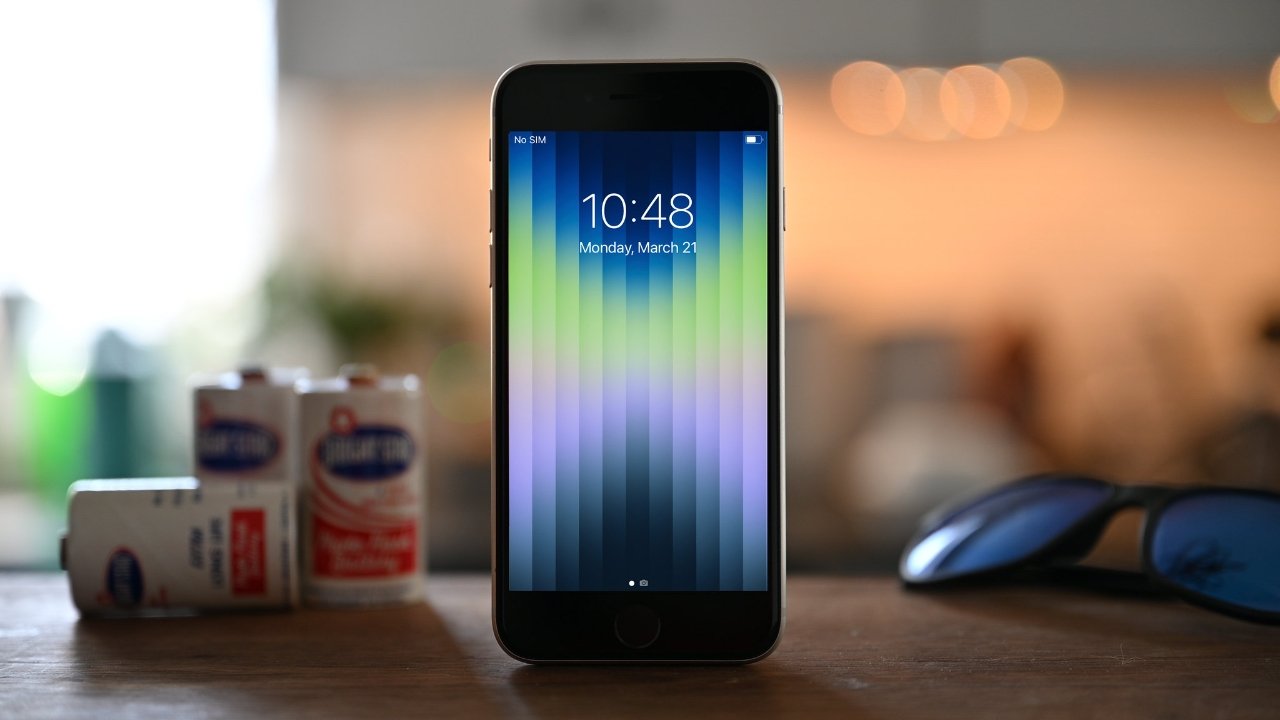
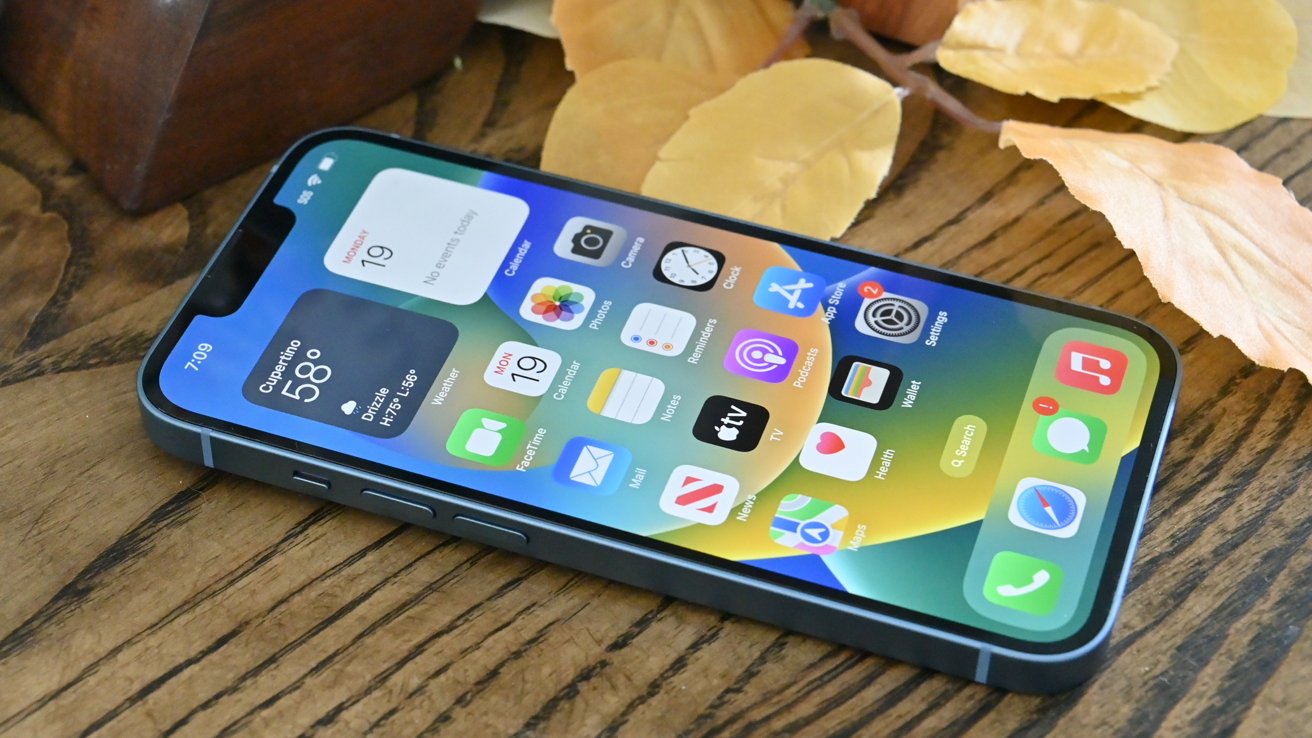
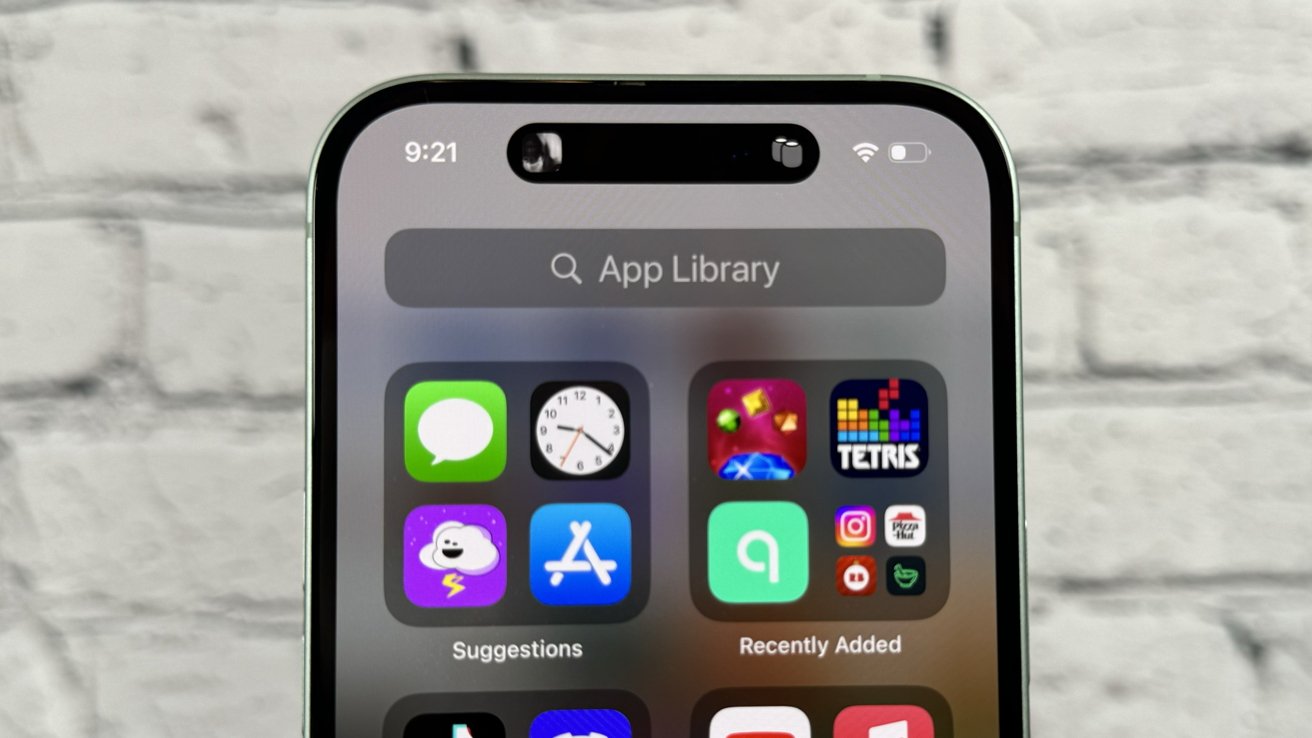
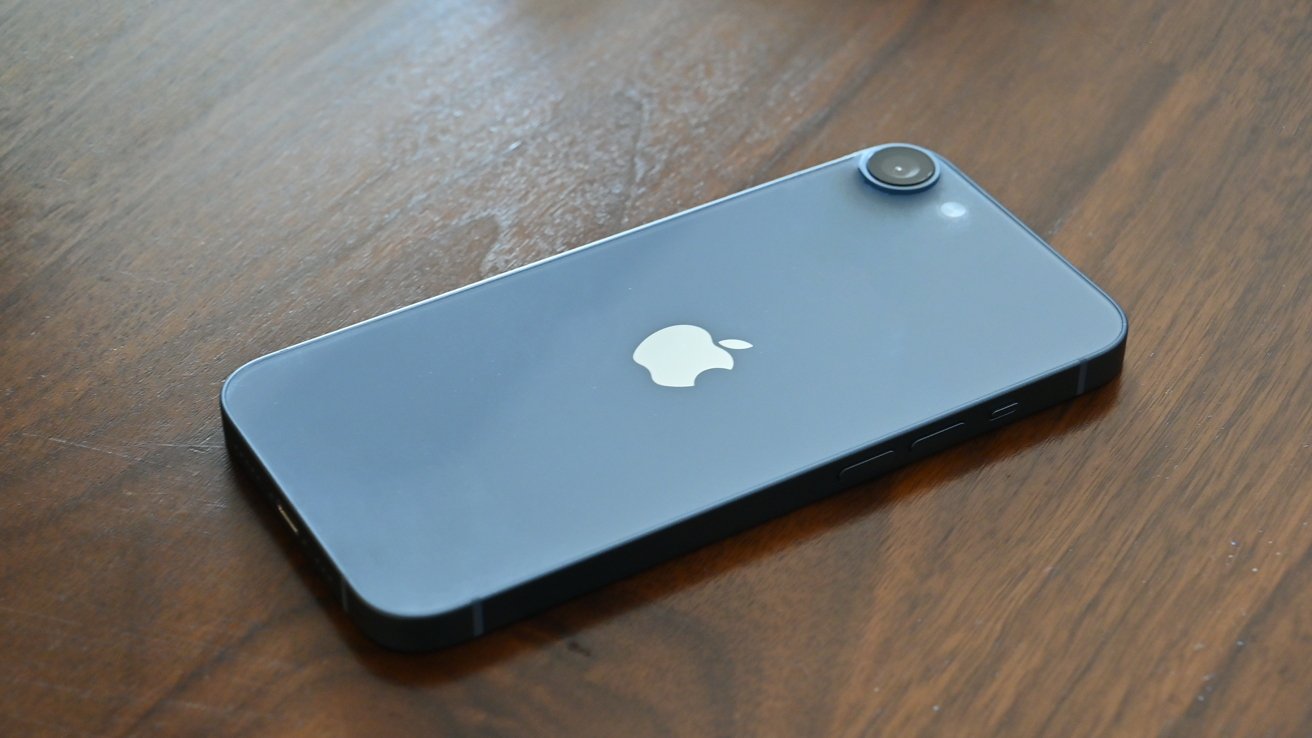
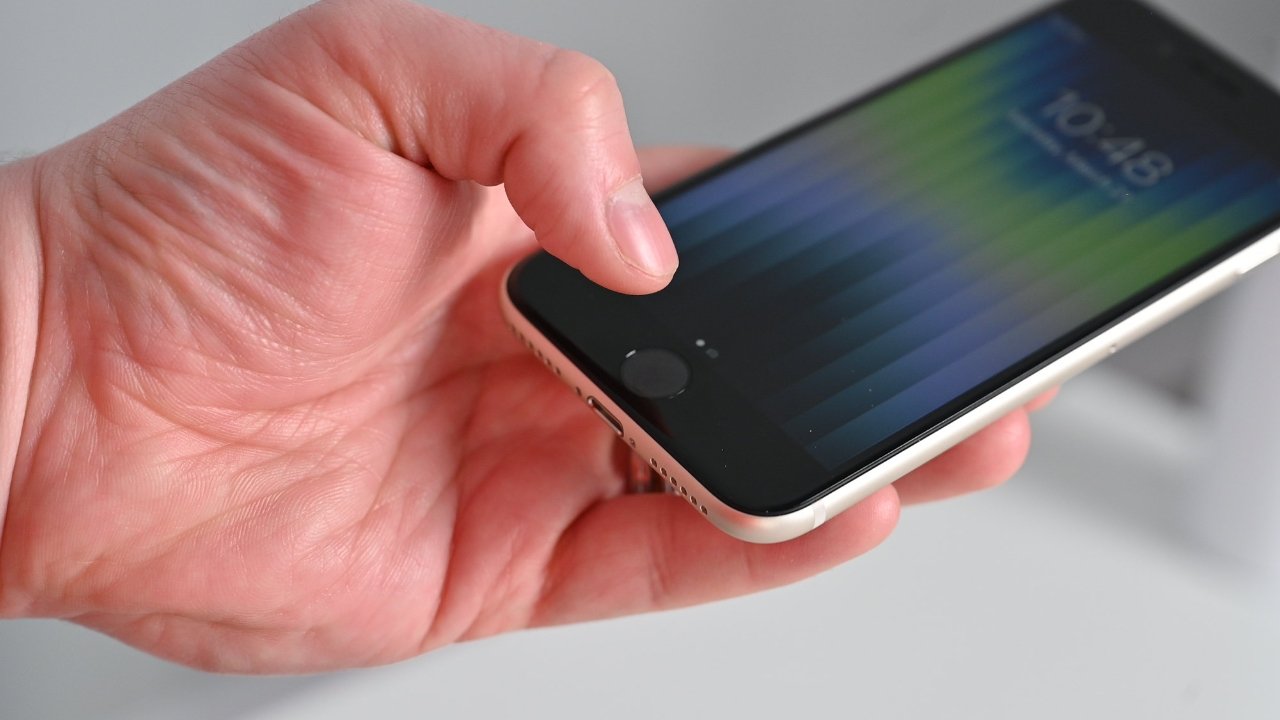
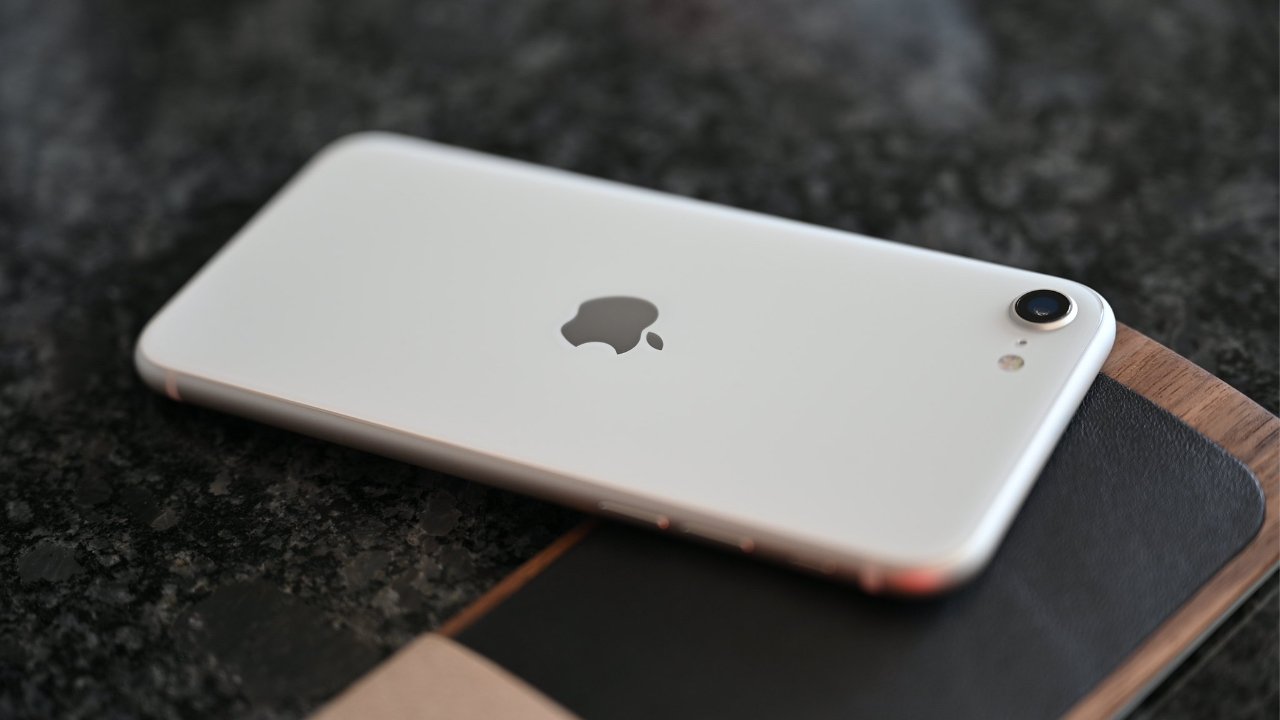
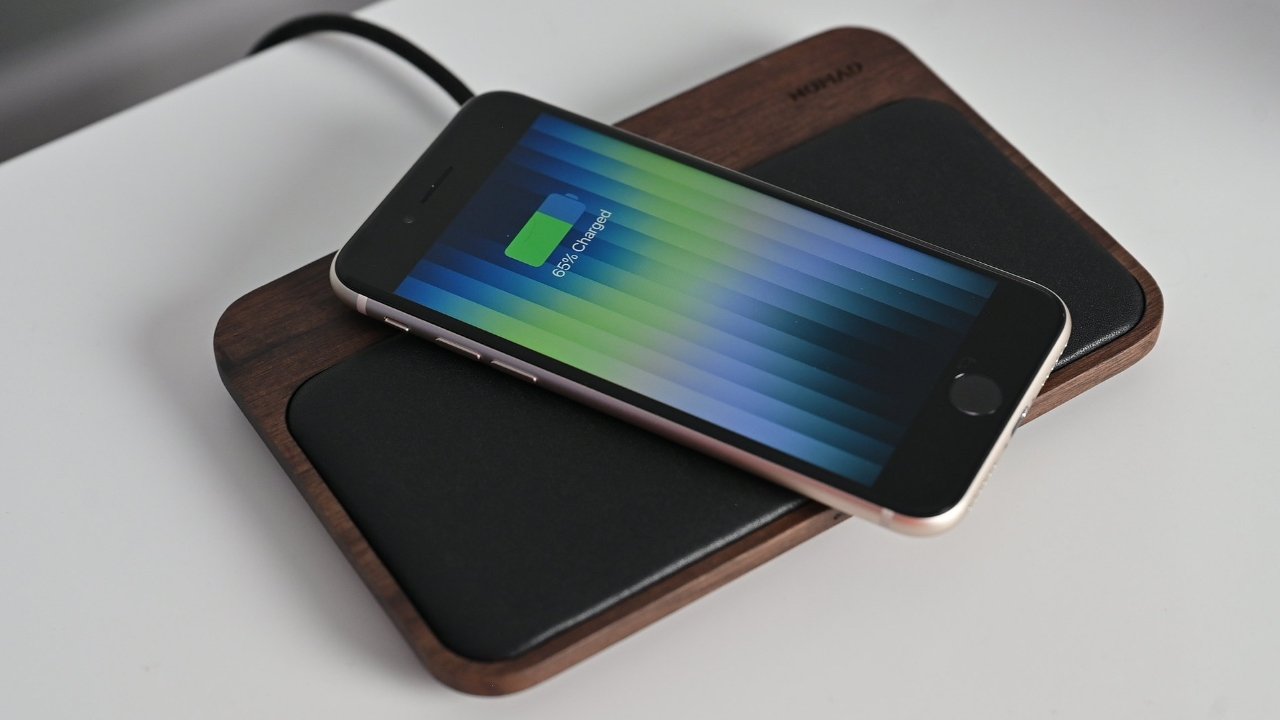
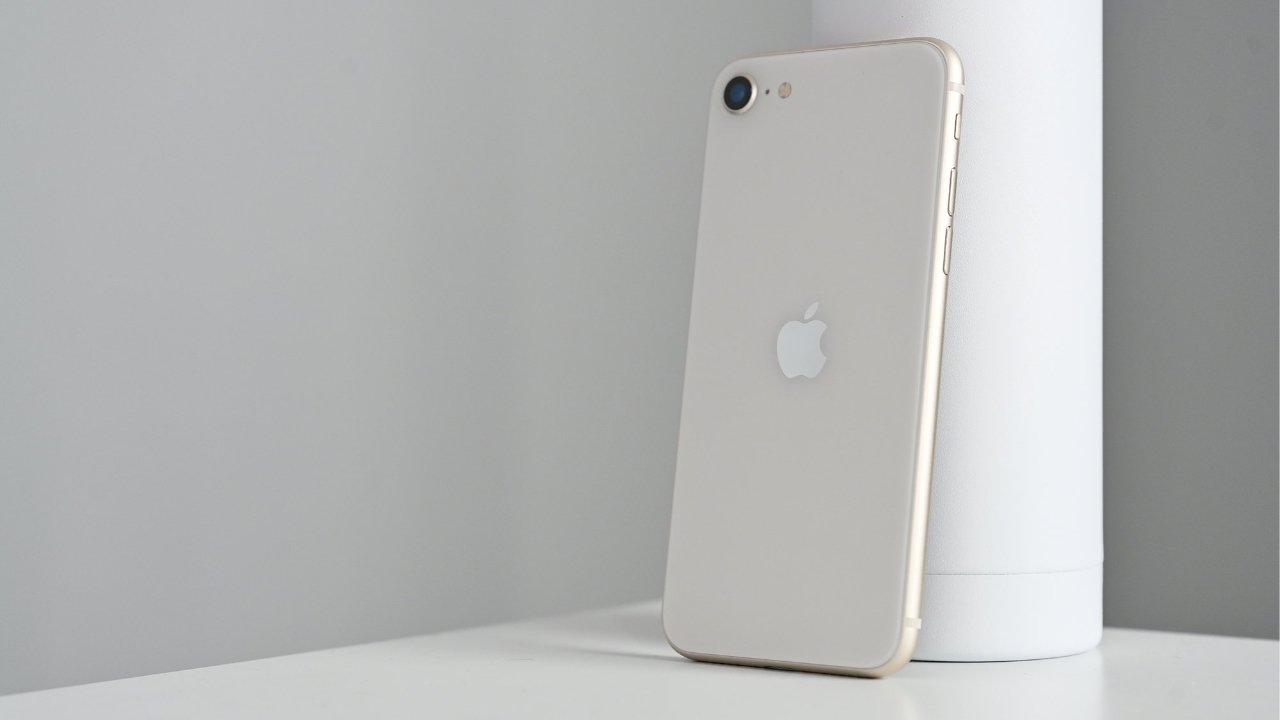
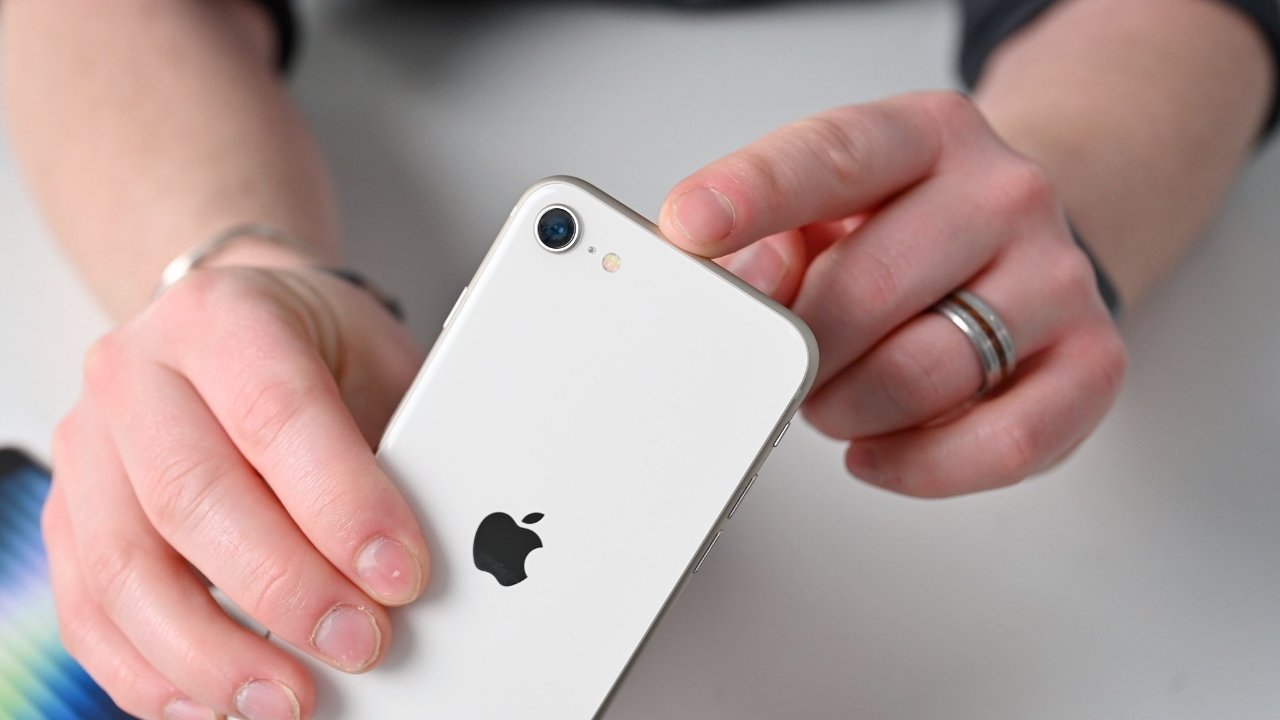
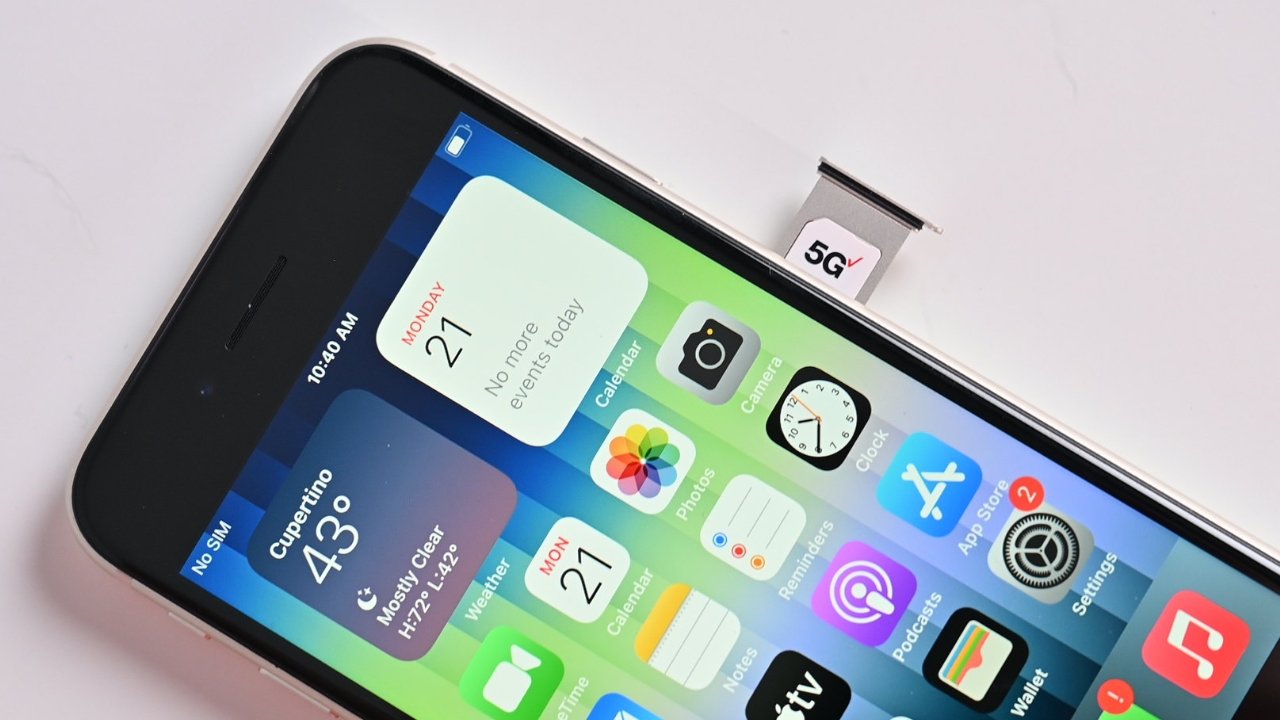
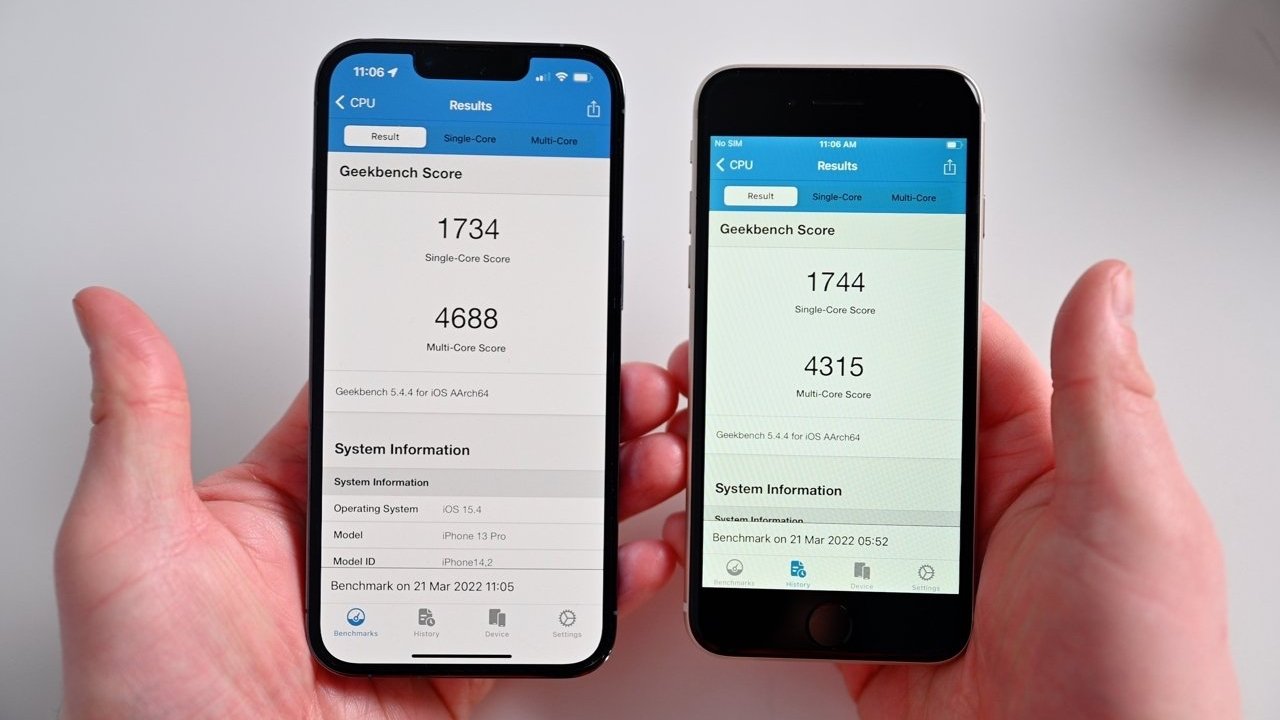
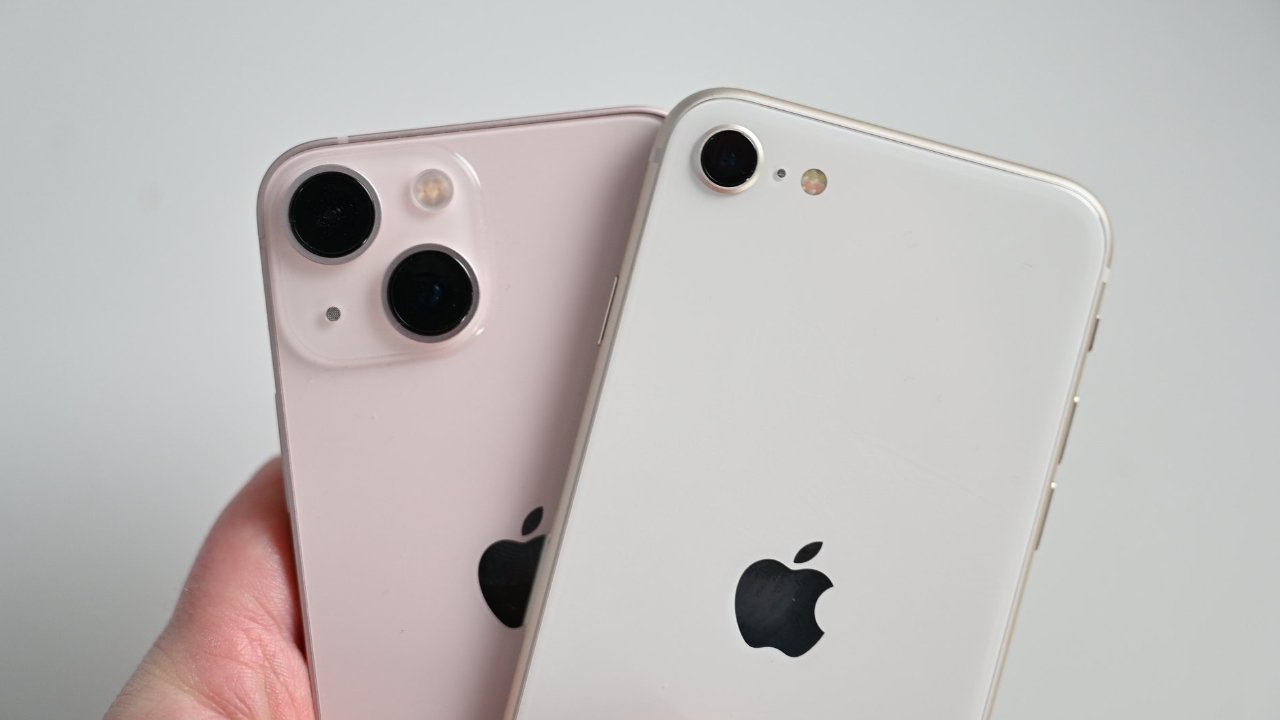
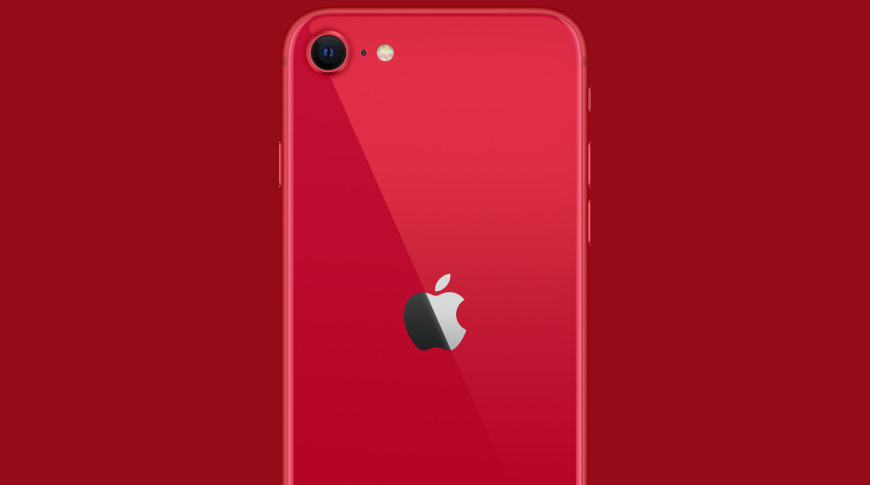
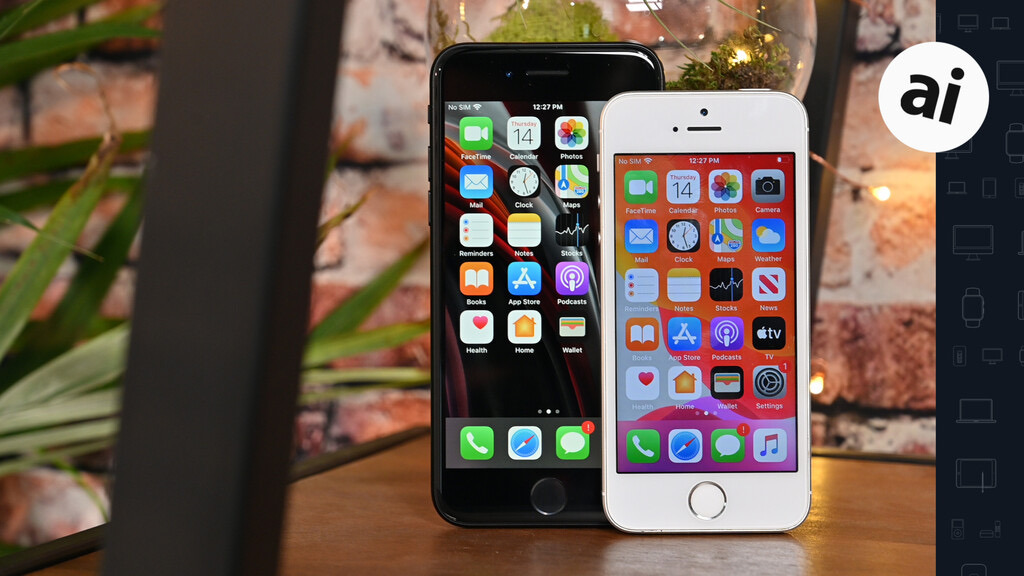
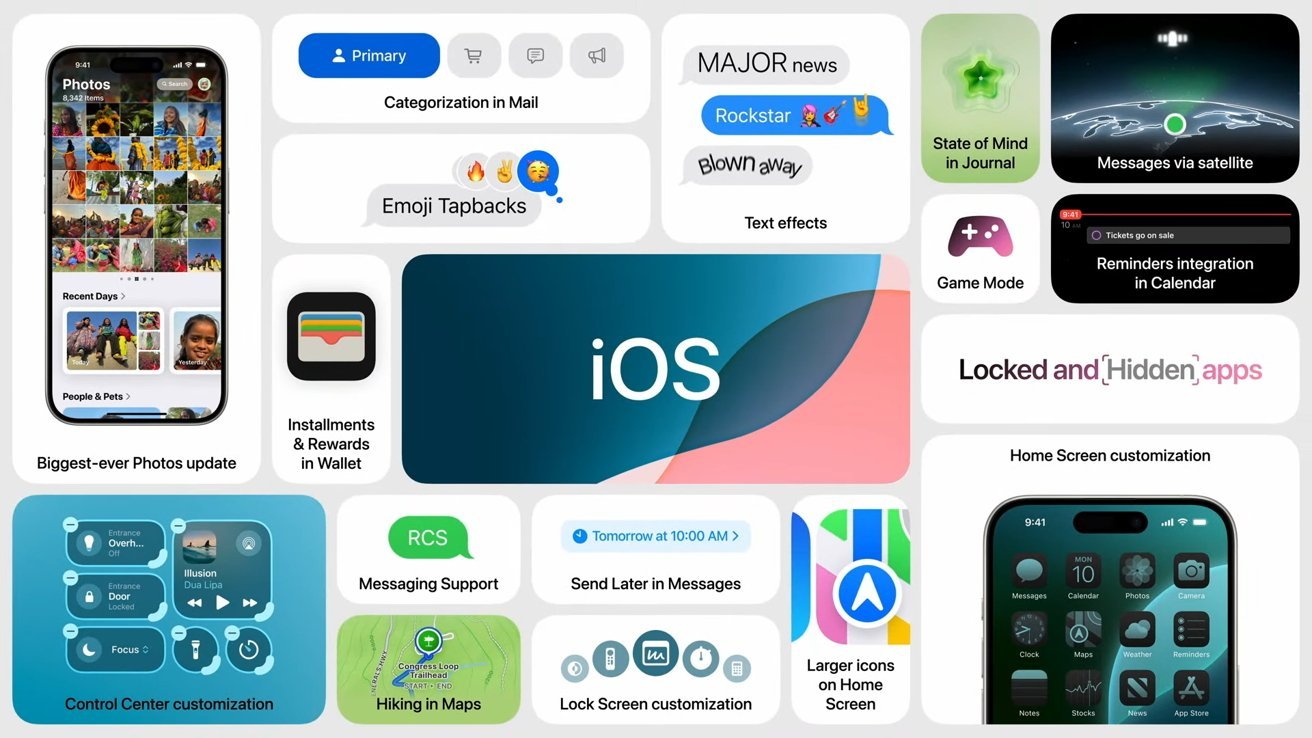

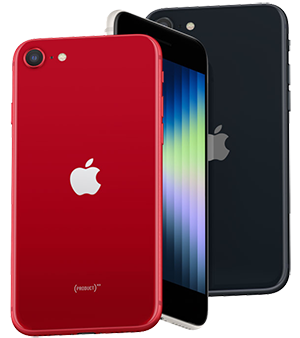
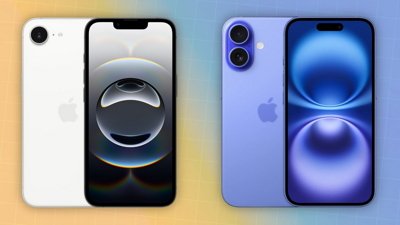
 Malcolm Owen
Malcolm Owen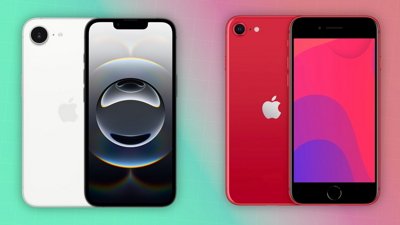
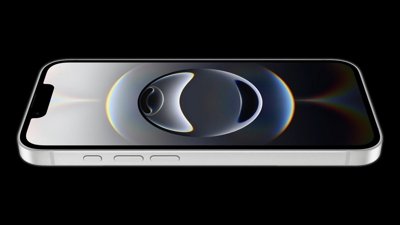
 Wesley Hilliard
Wesley Hilliard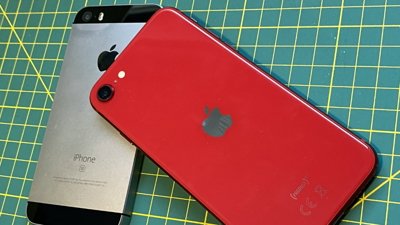
 William Gallagher
William Gallagher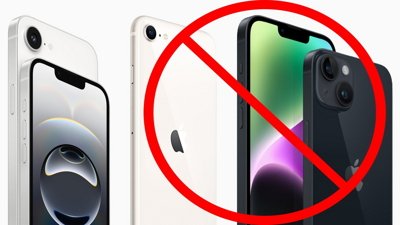
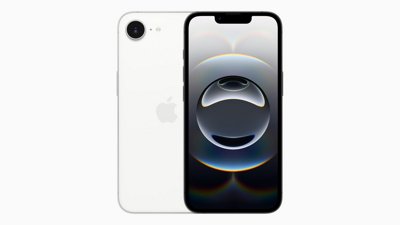
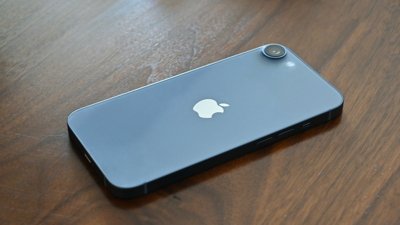
 Marko Zivkovic
Marko Zivkovic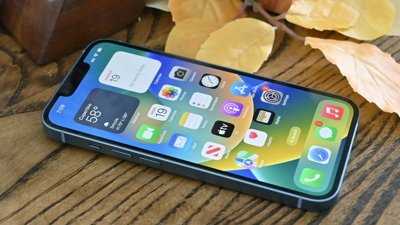
 Amber Neely
Amber Neely